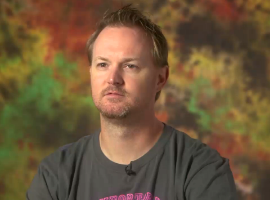InfoQ Homepage Change Content on InfoQ
Interviews
RSS Feed-
Emma Langman on Systems Thinking
Emma shares her view on Systems Thinking and why is it important in modern organizations that want to learn and move forward. She also delves into other topics from her experience such as working in the Middle East, women and technology and work-private life balance as a working mother.

-
The Mikado Method: A Systematic Approach To Restructuring Software
Ola Ellnestam discusses the Mikado Method, a systematic approach to restructuring software. While complementary to, but different than refactoring or developing 'clean code' this method looks at producing a dependency graph to guide developers through the most successful path when introducing change into an existing system.

-
Jason Little Discusses Lean Change
Jason Little sits down to discuss how he's been using Lean Change and gives us some insight into his book on the same subject.

-
Beyond Fearless Change: New Patterns and the Agile Mindset
In this interview Linda Rising describes what she has learned since writing Fearless Change and introduces 12 new patterns. Linda describes how she realized that some patterns are bigger, wider, and deeper than she originally imagined and offers the Piggyback pattern as an example. Linda also presents research into the fixed versus Agile mindset and renders her own conclusions.

-
Lyssa Adkins and Michael Spayd on Professional Coaching and Leading Conflict
Lyssa Adkins and Michael Spayd discuss the discipline of professional coaching, leading and facilitating conflict and the right view when thinking about conflict.

-
Linda Cook Discusses the Agile Coaching Profession
Linda Cook, a well-known agilist, and board member of both the Agile Alliance and the Agile Leadership Network, discusses the agile coaching profession. Among other things, she covers servant leadership, being as a role model, types of individuals appropriate for the profession, and the differences between being an external coach versus being an internal employee in the coach role.

-
Craig Larman on the Challenges of Scaling Scrum to Large Organizations
In this interview, Craig Larman discusses the many challenges you face when scaling scrum to large organizations. These challenges stem from decisions to use component teams over feature teams; adopting out sourcing without careful consideration for the impact of that decision; and over specialization of skills and limited learning which leads to waste, bottlenecks, and poor performance.

-
Mary-Lynn Manns on Fearless Change
Mary-Lynn discusses how Fearless Change presented patterns focused on the evangelist and the introduction of new change ideas into an organization. She goes on to note how the sequel, tentatively titled More Fearless Change, adds patterns that focus on gaining the necessary emotional and personal commitment to making change happen. She also talks about Agile and its adoption.

-
Joseph Pelrine's Blend of Science, Process &Teamwork
Joseph Pelrine was present when XP took its first steps, was Europe's first Certified Scrum Trainer, and today is still breaking new ground. In this 2007 InfoQ interview, Joseph talked about Network Analysis and how Social Complexity Science informs his work with teams; the usefulness of the Dilbert archetype; & a speed-dating technique to help teams get started (creating software, of course).

-
QCon Panel: What will the Future of Java Development Be?
In this panel discussion from QCon San Francisco, several influential leaders of the software development community discussed and debated the future of the Java language and APIs based upon the lessons we have learned from the past. Topics included static versus dynamic languages, removing code from Java, forking the JVM, and the next big programming language.

-
Little and Spayd on Agile and Organizational Change
Agile, once the territory of "early adopters" is coming into the mainstream and meeting resistance. Does this mean Agile can't work in more traditional teams and organizations? Not necessarily, say coaches Michael Spayd and Joe Little, in this InfoQ interview taped at Agile2006. What's needed is an awareness of the need to facilitate organizational change.